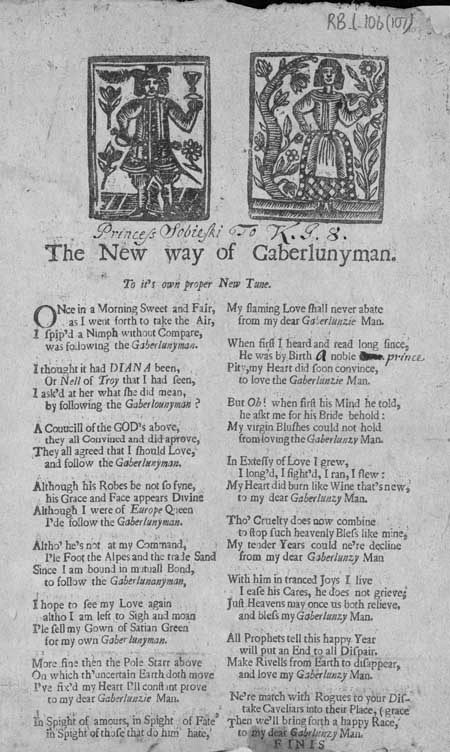Commentary
Verse 1: ONce in a Morning Sweet and Fair, / as I went forth to take the Air, / I spip'd a Nimph without Compare, / was following the Gaberlunyman.' This ballad was to be sung 'To its own Proper New Tune'. The broadside carries no date or place of publication. In medieval Scotland, a 'Gaberlunyman', more commonly 'Gaberlunzie Man', was a licensed beggar and beadsman, who would pray for the souls of others for a fee. The word 'gaberlunzie' is believed to have come from the French words 'gaban', referring to a sleeved, hooded cloak, and 'laine', meaning 'wool'. The cloaks these men wore were blue, so they were also known as 'bluegowns'. This song probably predates another song about the 'Gaberlunzie Man' in Allan Ramsay's 'Tea-Table Miscellany' of Scots songs, which was first published in 1724. Early ballads were dramatic or humorous narrative songs derived from folk culture that predated printing. Originally perpetuated by word of mouth, many ballads survive because they were recorded on broadsides. Musical notation was rarely printed, as tunes were usually established favourites. The term 'ballad' eventually applied more broadly to any kind of topical or popular verse.
View Transcription | Download PDF Facsimile
|
 |
Probable date published:
1719 shelfmark: RB.I.106(107)
 View larger image
View larger image
|


